
When you’re just not hungry
When you just don’t feel like eating the way you usually do—and perhaps you’re also tired and losing weight without intending to—your body is trying to tell you something. It may take some detective work to identify the cause, which could be physical, psychological, or a reaction, say, to a medication. “There are tons of things that can cause a lack of appetite and fatigue,” says Michael Finkelstein, MD, an internist at Scarsdale Medical Group. “It’s important to look at the whole patient and take a holistic approach to figure out what’s going on.” It’s just one of the 50 health symptoms you should never ignore.
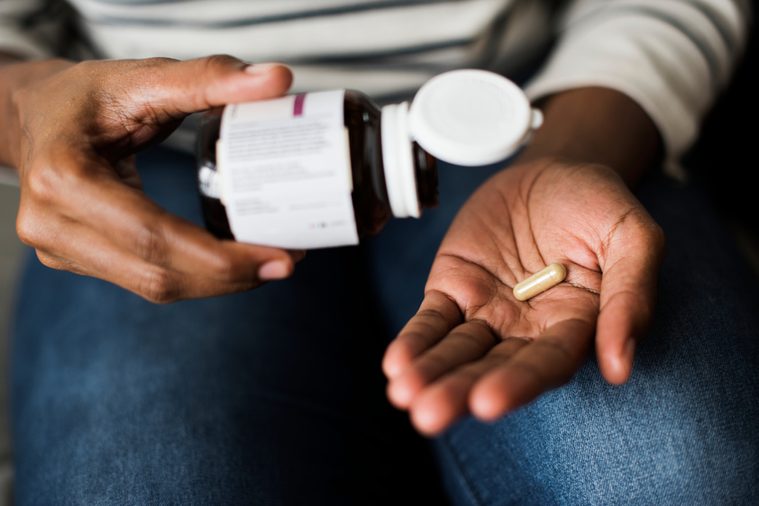
Medication side effects
“The first thing I would do is look at the medications the patient is taking,” Dr. Finkelstein says. “Many drugs can cause a loss of appetite.” Common culprits include opiate pain medications, some antibiotics, blood pressure medication, and medications that can upset the stomach and cause a person to not want to eat, such ibuprofen. Don’t miss these 10 bizarre side effects of common medications.
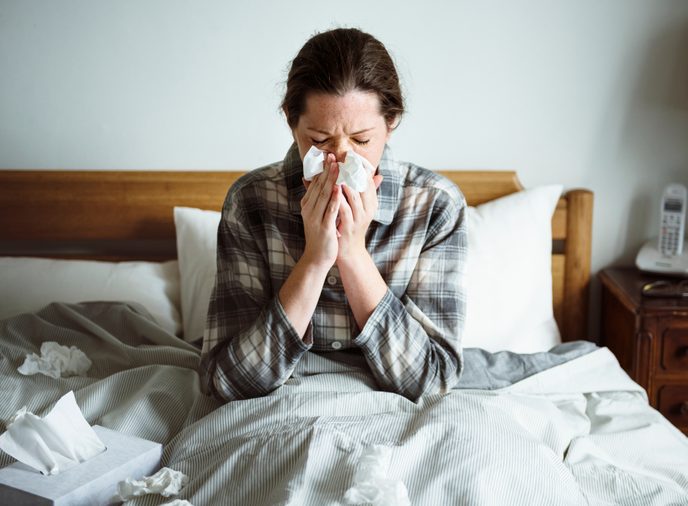
Cold and flu
Common illnesses can cause a temporary loss of appetite. These can include colds and flu; respiratory, bacterial, and viral infections; gastrointestinal problems like nausea or constipation; and of course food poisoning. “People may become dehydrated and don’t want to eat or are afraid to eat,” says Dr. Finkelstein. Here are 50 easy ways to avoid catching a cold.

Thyroid imbalance
Both an underactive thyroid (known as hypothyroidism) and an overactive thyroid (hyperthyroidism) can cause a person to stop feeling hungry. The thyroid gland secretes hormones into the bloodstream that regulate your metabolism, and a change in hormone production can cause a change in appetite, according to experts at Harvard Medical School. Learn to recognize the 13 silent signs of thyroid trouble.
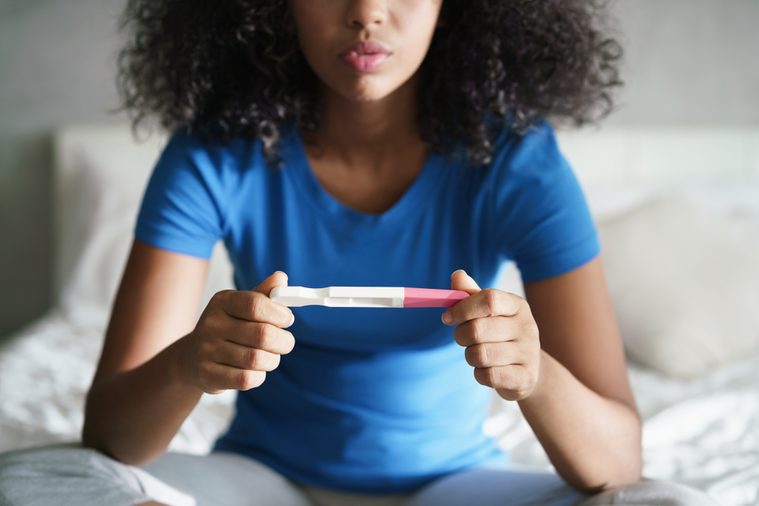
Pregnancy
Many women experience nausea in their first trimester that can lead to loss of appetite. “If they don’t realize they’re pregnant right away, they may not know where the upset stomach and loss of appetite are coming from,” says Dr. Finkelstein. Here are 10 very early pregnancy symptoms you might miss.

Smoking
“Smoking is a stimulant and an irritant,” says Dr. Finkelstein. “It can produce gastric stimulation that can make you feel sick and dizzy. This can affect your GI tract and cause you to lose your appetite.” Many people who stop smoking start feeling hungry again and gain, on average, 10 percent of their body weight. “But they feel better and are healthier and have more money to buy healthy food.” Want to quit? Here are 23 ways to stop smoking for good.

Alcohol and drug abuse
“People who drink heavily are filling up with empty calories. They feel bloated,” says Dr. Finkelstein. “And the alcohol irritates the pancreas and liver and leads to fluid in the abdomen.” For those addicted to drubs, extreme weight loss and a complete loss of appetite are common. Check out these 20 secrets addiction counselors want you to know.

Stress
Any type of adjustment disorder—from family stress to a job loss to the death of a loved one—can cause changes in appetite, according to the Mayo Clinic. These difficult life events may also cause some people to overeat—though a drop in hunger is common as well. Here are 37 ways to make managing stress easier.

Depression
Decreased energy and appetite are common in people with many types of depression, including persistent depressive disorder, postpartum depression, psychotic depression, and seasonal affective disorder, according to the National Institute of Mental Health. Bipolar disorder can have a similar effect. These are the 17 things psychologists wish people knew about depression.
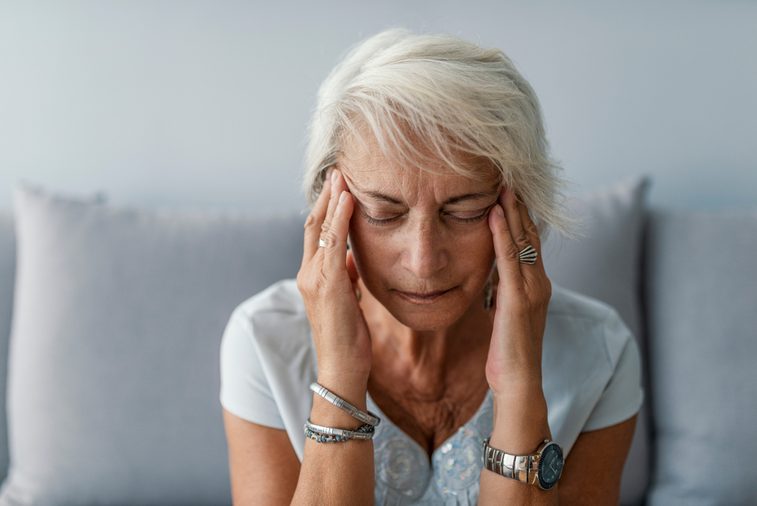
Dementia
As a result of memory loss and confusion, those with Alzheimer’s disease and other forms of dementia may forget to eat—and they may also have trouble managing daily tasks that include buying and preparing food. Those with dementia may also have depression, Dr. Finkelstein says, which can compound the problem. Here are 9 things you can do that will actually cut your risk for dementia by 35 percent.

Dehydration
When people don’t get enough fluids, they feel sick, says Dr. Finkelstein. “When you’re dehydrated, you’re volume-contracted”—which affects the appetite. This is especially common among older people. “As we age, we feel less thirsty,” says Dr. Finkelstein. “By the time someone feels thirsty, they’re way behind on their fluids.” Look out for these 7 unexpected signs of dehydration.

Digestive illnesses
Irritable bowel syndrome, Crohn’s disease, ulcerative colitis, and other medical conditions that affect the digestive system can dampen appetite. These conditions trigger nausea, pain, and either constipation or diarrhea, according to the Mayo Clinic, which in turn can decrease a person’s desire to eat. People with irritable bowel disease may also develop mouth ulcers, which can make it painful to eat. Here are 11 diseases that can start with gut bacteria.
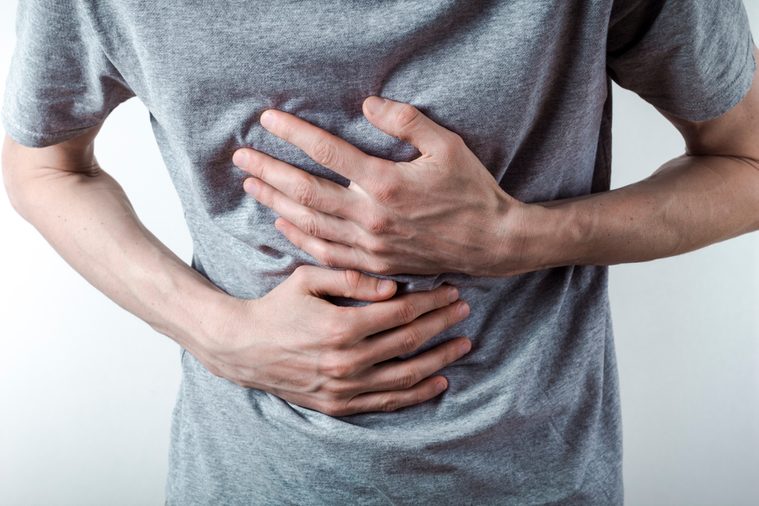
Acid reflux
Gastroesophageal reflux disease (GERD), also called acid reflux, is another digestive illness that can zap the appetite. People with GERD experience persistent heartburn—the contents of their stomach can push back up into the esophagus after eating. “They may wake up in the middle of the night with a sour taste in their mouth, which could preclude them from eating,” says Dr. Finkelstein. “Their throat may also become irritated.” Acid reflux vs. heartburn vs. GERD—what’s the difference?

COPD
The acronym stands for chronic obstructive pulmonary disorder, and it refers to several types of lung conditions including emphysema, chronic bronchitis, and severe asthma. COPD can depress appetite and lead to malnutrition, according to research published in the Journal of Translational Internal Medicine. Part of the issue is that losing lung function can lead a patient to avoid activity—and that in turn leads to a loss of appetite. COPD patients may also be depressed, which also ruins appetite. Check out the 12 silent signs that your lungs could be in trouble.
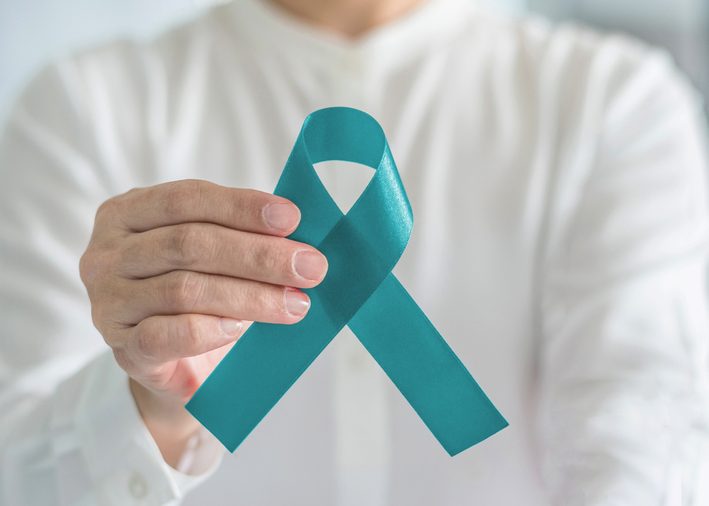
Cancer
The most common cancers that smother appetite include ovarian, stomach, colorectal, pancreatic, and bladder cancers, says Dr. Finkelstein. Loss of appetite can be the result of cachexia—a metabolic change caused by cancer or by cancer treatments. Diagnostic tests can detect each of these cancers, and early detection provides the best chance of successful treatment, so don’t hesitate to bring loss of appetite to your doctor’s attention. Here are 14 cancer warning signs you should never ignore.

Cancer treatment
Several common forms of cancer treatment—chemotherapy, radiation, and immunotherapy—are focused on the stomach and intestines and these can lead to loss of appetite. Side effects of these drugs—dry mouth, nausea, and mouth sores—can also make patients avoid eating. Doctors and cancer support teams can recommend remedies to help with side effects and appetite loss, according to the American Cancer Society. Here are 11 of the best foods to eat during chemo.

Coping with a loss of appetite
The approach to handling this issue depends on the cause, Dr. Finkelstein says. “If the person is nauseated, treat the nausea. Try ginger tea—it’s an old wives’ tale that actually works.” If it’s a digestive problem, he says, try eating more fruits and vegetables. Also: “Yogurt and fermented foods like kimchee are natural probiotics, which may replace bacterial flora if the person has been sick.” And, as always, he recommends drinking more water. “Staying well hydrated can help your appetite.” Don’t miss these 13 genius ways to make sure you drink enough water.
